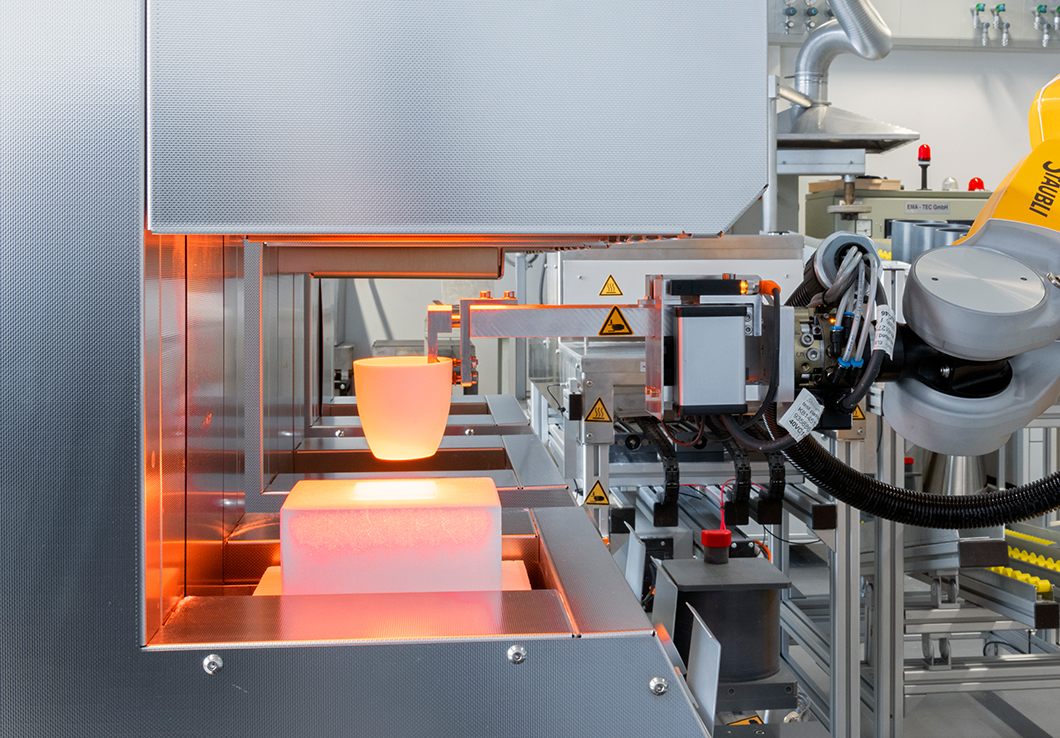
The robotic high-throughput glass melting system at BAM provides a starting point for the intended development of an ontology based digital infrastructure for high throughput glass design.
Source: BAM, Glasses division
Project period
01/02/2021 - 31/01/2024
Project type
Collaborative research project
Project status
Closed
Description
In the GlasDigital project - Data-driven workflow for accelerated glass development - digital tools for the high-throughput development of novel glass materials are to be developed.
Location
Bundesanstalt für Materialforschung und -prüfung (BAM)
Unter den Eichen 87
12205 Berlin
Glass capillaries Source: BAM
Source: BAM
Source: BAM
Source: BAM
Partners
Bundesanstalt für Materialforschung und -prüfung (BAM)
TU Clausthal
Friedrich-Schiller-Universität Jena
Fraunhofer Institut für Silicatforschung Würzburg
Funding
The project is funded by the Federal Ministry of Education and Research (BMBF) as part of the Initiative for the Digitisation of Materials Research in Germany (MaterialDigital).
GlasDigital - Data-driven workflow for accelerated glass development
GlasDigital wants to elaborate digital tools for the high throughput development of novel glasses. Due to the low degree of automation, current glass development cycles are usually very cost, energy and time expensive. Particular challenges arise from the wide variability of possible chemical compositions, high process temperatures and the lack of process and glass composition-structure-property data. Robotic glass melting systems with self-learning machines and their integration into an ontology based digital infrastructure should overcome these problems.
Methodology and BAM's contribution
The development relies on a robotic glass melting system, for which a prototype was developed at Fraunhofer ISC, and exemplarily starts from a technically improved system at BAM. For this purpose, the system has to be equipped with inline sensors for process monitoring, machine learning (ML)-based, adaptive algorithms for melt monitoring and optimization, novel tools for HD glass analysis and ML-based, adaptive algorithms for glass design, including adaptive software tools for data mining. The enhanced front-end tool and the coupled system control software will be expanded in this regard and linked to the platform MaterialDigital (PMD).
Partners
Bundesanstalt für Materialforschung und -prüfung (BAM)
TU Clausthal
Friedrich-Schiller-Universität Jena
Fraunhofer Institut für Silicatforschung Würzburg
Funding
The project is funded by the Federal Ministry of Education and Research BMBF as part of the Initiative for the Digitization of Materials Research in Germany MaterialDigital

Source: MaterialDigital und BMBF


